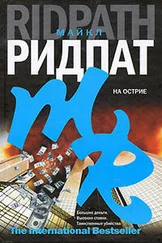Dear Mr Beldecos
Following your recent request regarding the beneficial ownership of International Trading and Transport (Panama), I thought you might be interested in the findings of a recent investigation at this branch.
You may recall that the only name on our records associated with International Trading and Transport (Panama) was Mr Tony Hempel, a Miami lawyer Our investigations into another of our clients have shown that this Mr Hempel is closely connected with Francisco Aragão, a Brazilian financier under investigation by the United States Drug Enforcement Agency for drug-related money-laundering activities.
While we make every effort to assist the international agencies in their investigations into money-laundering and drug crimes, we also owe a duty of confidence to our counterparties, so we have not yet passed on your inquiry to the DEA. However; if you have information you would like to share with them, please call me, and I will give you my contact’s name and number.
Yours sincerely
Donald Winters
Vice President
I stared at the fax.
Money-laundering. That meant, I believed, the recycling of illegally obtained cash through the financial system. Now I remembered from the first fax that this company, International whatever, Panama, had transferred some funds to a Dekker Trust account. And the lawyer who had ordered the transfer was an associate of a suspected money-launderer. Which meant that one of the Dekker Trust accounts might contain laundered money.
So this was what Martin Beldecos had been working on before he died! No wonder Eduardo wanted to make sure that he received Martin’s messages personally, and that no one else saw them.
I picked up the fax and walked over to Eduardo’s corner office. I knocked on the door, and tried to open it. It was locked.
‘He’s not in today,’ said a middle-aged woman, presiding over a corral of desks just outside his office. ‘Should be in tomorrow. Can I help?’
I dithered over giving her the fax. Eduardo had said I shouldn’t let anyone else see any of Martin’s messages. But she was his secretary. But, then, this was clearly an important message. I remembered the implied threat in Eduardo’s voice, and decided the safest thing was to wait until I could give Eduardo the message personally.
‘No, that’s all right,’ I said, and made my way back round the square of trading desks to my own seat.
‘One nil!’ Dave flung his phone down on his desk, and stood up in triumph, his arms in the air, his stomach thrusting out in front of him. He attracted only a quick glance from the other traders around him. Another small victory over the market. Another dollar made.
Suddenly I felt cold. Perhaps Dave had been right. Perhaps Martin had been murdered by a contract killer. If he knew about money-laundering at Dekker, someone might have wanted to shut him up.
No. I was just being fanciful. I returned to my desk clutching the fax tightly. I should just give it to Eduardo and forget about it. He could sort it out.
But Eduardo? Perhaps he already knew all about it. If someone was laundering money through Dekker Ward, it wouldn’t surprise me if Eduardo did know all about it.
What the hell should I do?
I looked round for Jamie, but he was still out at his meeting.
Then I saw Ricardo moving towards me.
‘Still want to keep that Argentine position? They’re lagging the market a bit, aren’t they?’
I dropped the fax on to my desk, and wrenched my brain back to the market. ‘The reasons we bought the bonds still hold good,’ I said. ‘So yes.’
‘OK, fine. We’ll see what happens. Now, what are you doing at the moment?’
The fax to Martin Beldecos was right there, face up on my desk, partially covered by my left arm. Now was the time to tell Ricardo about it. Just give it to him, and forget it.
But something made me hold back. I think it was because I couldn’t foresee the consequences, although I was sure they would be important. I needed time to think it through first.
So, keeping my arm on the desk, covering Martin Beldecos’s name on the title sheet, I said simply, ‘Reading.’
‘Uh-huh. Don’t you think it’s about time you got involved in a real deal?’
‘Yes. That would be great.’
‘Good. Isabel is going down to Rio tonight to sort out this favela deal. She’ll need some help. Can you go with her?’
‘Of course.’ My pulse quickened at the prospect of working closely with Isabel. Besides, this was a great opportunity; my first business trip at Dekker, and a big deal. One that Ricardo was personally interested in. Although I had to admit he seemed to be personally interested in every deal.
I glanced towards her. She was leaning back in her chair talking on the phone, but she had seen Ricardo with me, and gave me a quick smile of encouragement.
‘Good. I’d like you to see how we operate in the markets we know well before I set you on to Russia,’ Ricardo said. ‘See what you can do.’
A voice interrupted. ‘Ricardo! Vasily Ivanov from the Russian Finance Ministry on twelve!’
‘Ah, the Russians are coming.’ Ricardo smiled, and returned to his desk to take the call.
Isabel put down her phone. ‘Pull up a chair,’ she said. ‘I’ll tell you what we’re doing.’
‘Just a second,’ I said. I picked up the fax, and looked at it once again. Then I opened the bottom drawer of my desk, which was still empty, and tossed the fax inside. I’d deal with it later, when I had had a chance to think about it.
I pulled over the chair from my own desk, and sat next to her. I could just smell her perfume. Concentrate!
‘I said all this would get easier once you started doing it, rather than just reading about it, didn’t I?’ She smiled, a shy flash of teeth that came and went. ‘Well, I may be proved wrong. This deal isn’t a good one to start on.’
‘I’ll do my best.’
‘OK. Let me tell you the story. First of all, do you know what a favela is?’
‘It’s some kind of a slum, isn’t it?’
‘That’s right. In Brazil there’s been massive migration from the countryside to the towns over the last forty years. People arrive in the cities without anywhere to live. So they find some empty ground, and build a shelter there. They make them out of pieces of timber, corrugated iron, things like that. As more people come, their homes become a bit more substantial, and these areas grow into large communities, some of them with thousands of inhabitants. These are the favelas. ’
‘They sound grim.’
‘They are,’ said Isabel. ‘They have no sanitation, open sewers run through the streets. No running water. No garbage collection. If there’s a fire, the fire service can’t get in to put it out. There are very few schools or clinics. There are drugs and gang wars. They’re horrible. No humans should be allowed to live in those conditions.’
‘So why don’t the authorities do something about them?’
‘They’ve tried. Whenever they move the residents on, they just build a favela somewhere else. Sometimes the city will build cheap housing for some people, but then these are replaced by thousands more. And you know how little money Brazil has to spend on anything, these days.’
‘OK, so what’s the solution?’
‘Well, the Municipality of Rio de Janeiro think they’ve found one. It’s called the Favela Bairro project. Bairro means neighbourhood. The idea is that instead of trying to move or replace the favelas, they will try to change them. Turn them into proper neighbourhoods. So they will build roads, health centres, schools, parks, water systems, electricity. But, most important of all, they’ll give the inhabitants of the favelas title to their properties.’
Читать дальше












